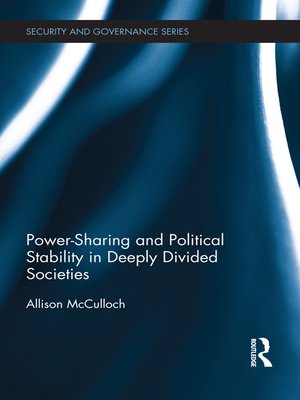Power-Sharing and Political Stability in Deeply Divided Societies
ebook ∣ Security and Governance
By Allison McCulloch

Sign up to save your library
With an OverDrive account, you can save your favorite libraries for at-a-glance information about availability. Find out more about OverDrive accounts.
Find this title in Libby, the library reading app by OverDrive.



Search for a digital library with this title
Title found at these libraries:
| Library Name | Distance |
|---|---|
| Loading... |
Nearly all the peace accords signed in the last two decades have included power-sharing in one form or another. The notion of both majority and minority segments co-operating for the purposes of political stability has informed both international policy prescriptions for post-conflict zones and home-grown power-sharing pacts across the globe.
This book examines the effect of power-sharing forms of governance in bringing about political stability amid deep divisions. It is the first major comparison of two power-sharing designs – consociationalism and centripetalism - and it assesses a number of cases central to the debate, including Nigeria, Sri Lanka, Fiji, Bosnia and Herzegovina, Burundi and Northern Ireland. Drawing on information from a variety of sources, such as political party manifestoes and websites, media coverage, think tank reports, and election results, the author reaches significant conclusions about power-sharing as an invaluable conflict-management device.
This text will be of key interest to students and scholars of ethnic conflict management, power-sharing, ethnic politics, democracy and democratization, comparative constitutional design, comparative politics, intervention and peace-building.







